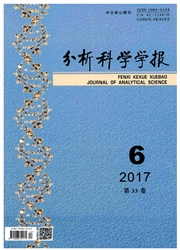

 中文摘要:
中文摘要:
本文对玻璃和聚二甲基硅氧烷(PDMS)材料制作的微流控芯片电渗流焦耳热效应进行数值研究。采用双电层的Poisson—Boltzmann方程,液体运动的Navier—Stokes方程和液-固耦合系统的热传导方程研究二维微通道电渗流的温度特性。研究发现:由于材料属性的差别,温度场和速度场在微通道断面存在不均匀性。微通道表面的温升会降低双电层的电荷密度。热效应会对电渗流速度场产生影响,并诱导压强梯度和改变外电场在微通道的变化特征。
 英文摘要:
英文摘要:
This paper presents a numerical analysis of Joule heat effect of electroosmosis in microchannels made of glass and PDMS polymer. Poisson--Boltzmann equation of electric double layer, Navier-Stokes equation of liquid flow and liquid-solid coupled heat transfer equation were employed to study temperature behavior of electroosmosis in two-dimensional microchannel. The feedback effect of temperature on medium properties (dielectric constant, liquid viscosity, heat and electric conductivities) were also taken into account. Numerical results indicated that liquid temperature increased with increase of appled electric field, channel width and chip thickness, and temperature variation was found in channel section. The temperature on PDMS wall was higher than that on glass wall due to difference of material heat conductivities. It was also found that the increase of temperature on wall decreased charge density of electric double layer. Temperature ununiformity induced pressure gradient and changed variation behavior of applied electric field in microchannel. Inflow liquid temperature did not change liquid temperature of steasy state and heat development distance from the channel inlet.
 同期刊论文项目
同期刊论文项目
 同项目期刊论文
同项目期刊论文
 A coordinate transformation method for numerical solutions of the electric double layer and electroo
A coordinate transformation method for numerical solutions of the electric double layer and electroo An analytic solution of liquid flow in rectangular PDMS-GLASS microchannel with wall slip and electr
An analytic solution of liquid flow in rectangular PDMS-GLASS microchannel with wall slip and electr 期刊信息
期刊信息
